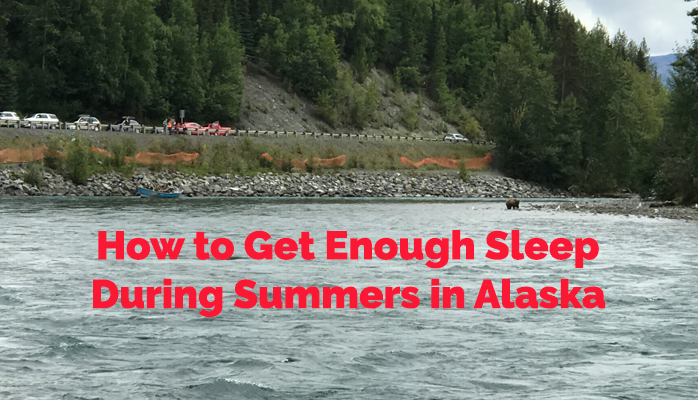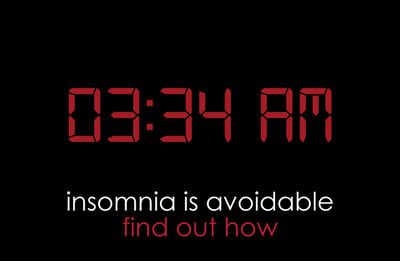Alaskan summers can make having a sleep schedule feel impossible. And it’s not just the sun/twilight that burns throughout the night. Alaskan summers can make it hard for many reasons, including:
- Constant sunlight throughout the night
- Influx of shift work during the summer, such as fishing, construction, etc.
- Pressure to pack in a full schedule in a short, sunny, summer season
- Transitioning from Alaskan winters
Light can create a large issue for sleep, especially as the amount of light is dependent on a few factors:
- How far north you are
- How sensitive you are to light
- What existing measures you take to ensure good sleeping habits
Regardless of these changes, getting good sleep is still vital for overall health. In this blog post, we will discuss ways in which you can achieve a good night's sleep during these drastic season changes.
Sleep Disorders Specific to Alaskan Summers
The primary issue with sleep in Alaska is the development or worsening of sleep disorders like insomnia and circadian rhythm disorders.
Our circadian rhythm, or biological sleep-wake cycle, is managed by melatonin, which in turn responds to changes in light throughout the day.
During transition from light to dark, the body produces melatonin, inducing sleepiness and initiating body processes that take place at night. During transitions from dark to light, the body suppresses melatonin, and increases cortisol, in order to promote wakefulness and jumpstart metabolic processes. Without the transition to darkness at night during Alaskan summers, it can be much harder for our body to have the clues needed to produce melatonin and promote sleep.
What is Insomnia?
Insomnia is a sleeping disorder that can be described as having trouble falling asleep, having trouble staying asleep, or waking up much earlier than planned. This can lead to a chronic feeling of not getting enough sleep. This can be very frustrating, especially when it happens several times a week for a long period or time. There are also many risks associated with sleep deprivation secondary to insomnia.
There are two types of insomnia, primary and secondary:
- Primary insomnia: Insomnia without an obvious underlying cause.
- Secondary insomnia: Insomnia with an identifiable underlying cause .
Insomnia also varies in how long it lasts and the frequency with which it occurs:
- Acute insomnia is short-term, lasting for up to a month. It is often associated wit short-term circumstances that interfere with sleep.
- Chronic insomnia is long-term, last for longer than a month. It is often associated with an underlying health condition that must be treated in order to address insomnia.
What are Circadian Rhythm Disorders?
Circadian rhythm is the same thing as your “biological sleep clock.” This biological sleep clock is a part of your brain called the suprachiasmatic nucleus of the hypothalamus, and sits right behind the nerves of your eyes so it can react to changes in light.
Circadian rhythm disorders include insomnia, but also encompass any type of sleeping problem you may have, such as:
- Erratic sleeping pattern
- Continuously shifting biological clock
- Natural sleep/wake times that are abnormal
A good example of this is jet lag which is a temporary circadian rhythm disorder that makes it difficult to sleep at “regular” times, but once you fall asleep, you do not have issues staying asleep.
How to Set and Maintain Sleep Schedule During Alaskan Summers
There are many easy steps you can take to prepare for the summers and improve your sleep:
- Have blackout curtains in your room
- Try and use your bedroom for only sleeping as much as possible (don’t work out, do work, etc.)
- Keep your room cooler at night
- Use essential oils, candles, and/or plants to make your room smell comforting/fresh
- Invest in a comfortable pillow for your head and legs
- Invest in a comfortable mattress (they are often on sale and they last a long time, after all)
- Use white noise machines (i.e. a fan) or ear plugs if needed
- Using light therapy during winter
- Maintaining pre-sleep ritual every night, such as reading, meditating, etc.
- Having consistent exercise
- No blue light in the hour before bed
- No alcohol in the hour before bed
- No food in the hour before bed
- Having a bedtime that you commit to as often as possible
- Taking hot baths before bed, as when you get out of the bath, it simulate a core temperature drop (i.e. night time is coming!) that is a cue for sleep
If you have children, setting up pre-sleep routines for yourself is practically no different than doing it for children.
The reality is that seasonal insomnia or sleep disorders may be very difficult for you to prevent or mitigate. If you have tried all of these tips, but continue struggling with your sleep, then please click the button below for a sleep medicine consultation.



